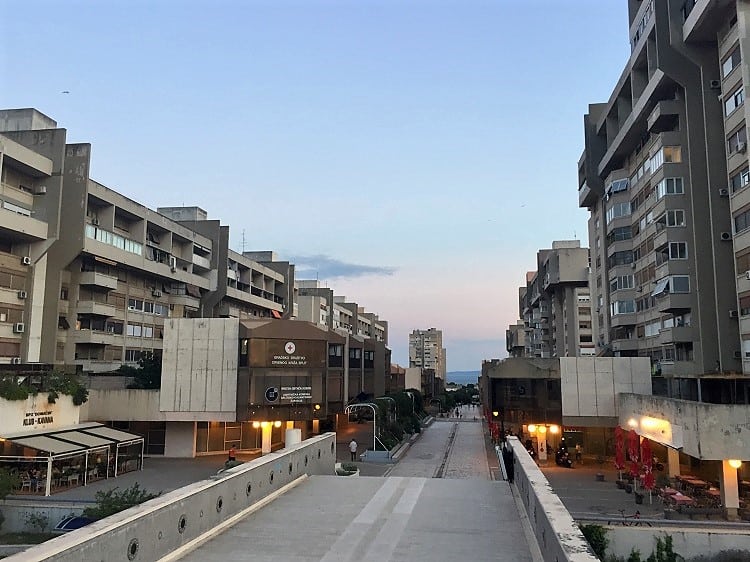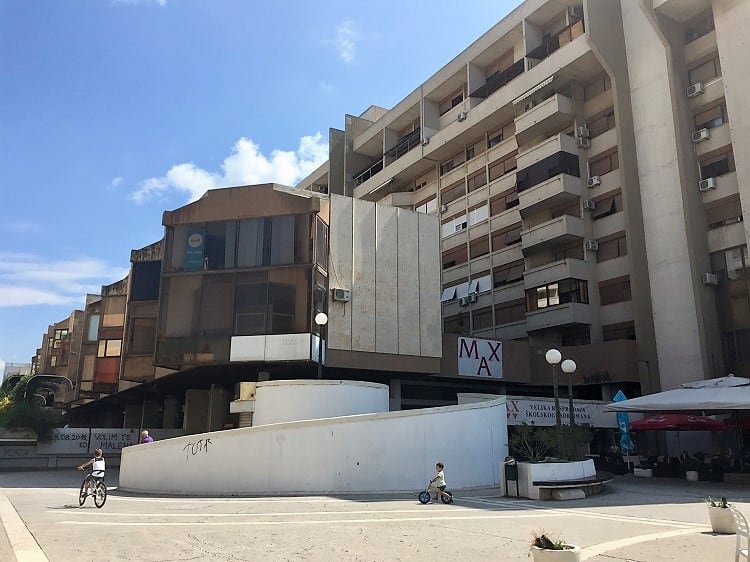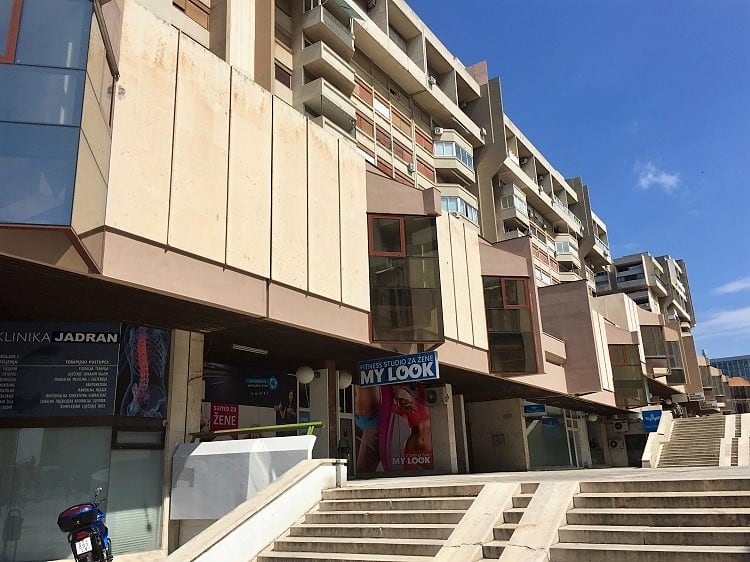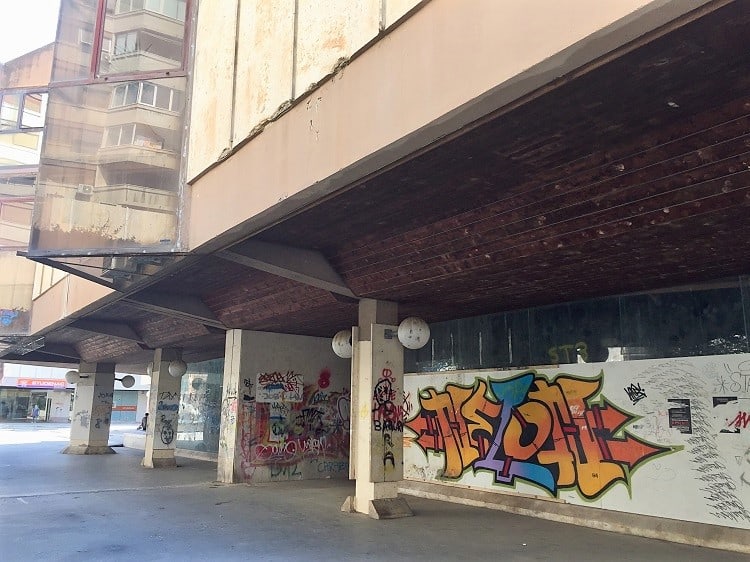Last Updated on June 27, 2025 by Ellen
We are temporarily living among the locals in Split, Croatia, in an apartment building complex from the Soviet-era. The complex is famous– or infamous, depending on whom you ask, or what you read.
The units are one and two bedrooms, located in large, concrete, block-like buildings. Storefronts are found on the ground level, most often cafes, banks, or hair salons. A few business areas are vacant with graffiti and broken windows.
Locals say the buildings went up in the early 1970s, designed by a famous Croatian architect. The apartments housed military members and their families. Soviet spies lived in some of the one-bedroom units near the front of the building. After the fall of the Soviet Union, and after the war that broke up Yugoslavia, locals say the spies left.




Wartime stories and wounds began to fade in the new century, and a new generation of tourists discovered the Dalmatian coast. Over some years, a new tourism industry was born. Tenants in the old complex obtained permits from the new democratic government for home improvements. Airbnb came to the complex. And here we are.
My imagination kept going back to the pre-war days. I wondered what it was like to live among Soviet spies. I began to search online for more info. I didn’t find anything dramatically more revealing about the Soviet spies in this particular apartment complex, but I did find a lot of information about controversial wartime evictions here.
Croatian military forces forcibly evicted apartment owners of Serbian descent, and then moved into homes. I found an article dated after the war (post-1995) that recounted how Croatian forces evicted flats that formerly belonged to Yugoslav National Army (JNA) members and families. This happened in Split, the current capital Zagreb, and some smaller towns where former JNA members or their families lived..
Croatian officials justified the evictions on the grounds that under the former socialist state, apartment rights were issued to people to live in state property. But as Croatia went to war for its independence, the officials deemed evictions of JNA families necessary to provide apartments to Croatian soldiers and their families. Evictions often happened in the middle of the night. Among various things I read, accusations of sexual assaults and beatings accompanied some evictions. I found an old Amnesty International report interesting.
Many evicted families went to Serbia or left to live with relatives in Western Europe. A few stayed in Croatia to fight the evictions in court, and that took years. I read a report published in 2016 that recounted the legal battles. One former owner got back into her home due to her determination and dumb luck. Some Croatian humanitarian groups tried to the help those people evicted from the beginning, throughout the war and through the courts.
I’m not judging, and I am not taking sides. I am well aware Serbs also did horrible things to Croats. That’s what war does – it magnifies the worst of humanity on all sides. Humans loose empathy for each other when an allegiance is pledged to a ‘side’.
There is a memorial to the Croatian soldiers who were killed in the war, towards the back of the complex in the main walkway. I’ve read there also is a memorial to the evicted families, but no local has mentioned it, and I haven’t seen it in any of the main public areas yet.
About a mile-and-a-half from our Airbnb apartment, tourists come to the beautiful port city of Split on cruise ships and planes to check out the history. They see the Diocletian Palace from Roman times. They take ferries to the nearby islands, take buses on day trips to see ancient churches in nearby Trigor. Few visitors ever experience what’s beyond the tourist zone. We have seen a few tourists around our apartment complex, but it’s 99 percent locals.
Every day I pass countless 20-and-30-somethings when I come and go from my building and the neighborhood. They look like young people from anywhere else, with phones and earbuds, and they wear trendy styles you’d see back in the States. Most of them know English and they are happy to practice the language if you strike up a conversation.
One young man said all the younger people learn English in school, and most kids go to college if they can because Croatia doesn’t have enough good jobs for everyone. Just like back home in the U.S.
Some older people also know English, but they are not likely to be as fluent as the younger generation. The older Croatians are less likely to strike up a conversation in English, but its their perspective I find most interesting.
One older woman I’ve talked with is Roman Catholic. She said she was never a socialist, but she knows the political philosophy well having lived through that era. When she compared the old socialist government to the current democracy, she noted the differences. She also said two things stand out to her as exactly the same.
‘Bureaucracy!’ she said in basic English. ‘It is same. It takes long time for everything. It is not easy to get anything done.’ She rolled her eyes and shook her head.
Also, ‘the party never give money for church,’ she said. When the socialists left, she said new churches were built all around Split, but the majority of people now seem as unconnected to a deeper spirituality as they were in socialist times. ‘Most people only pray if they need something back then. It is same just now.’
I like to talk to locals to learn more about what it’s like to really live here – not just visit. We like our rental unit here: it’s modern, close to the sea, beaches, parks, shopping, cafes, and other services. Also, as budget travelers, we like the lower price of our Soviet-era unit. It’s more affordable than apartments and hotels in tourist zones during the current high season.
